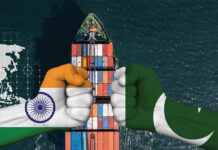The Battle of the Sugar Barons has yielded its first victim
The PSX has mandated that Haseeb Waqas Sugar Mills needs to buy back its shares. For once, the sugar manufacturer has decided to let up
The declining returns to emigration
For decades, Pakistanis have defined success as getting out. But the cost have been going up, and the returns have been declining. At what point does it stop making sense?
Farewell, Careem Pakistan
The ride-hailing giant was an early innovator in Pakistan, and made the country one of its core markets. Now, Pakistan is just a back office for the company. How did the company cede so much market share to its newer competitors?
K-Electric: Asleep at the switch
A bruising board fight has left the management adrift, at a time when the company is unprepared to deal with the coming age of solar energy
The livestock sector is keeping Pakistani agriculture alive
At a time when Pakistan’s major crops are failing, the country’s livestock sector is thriving against all odds. Could it be enough to keep us food secure?
Salaried Pakistan
A regular monthly paycheck is still not the norm in the Pakistani labour force, but is steadily becoming more common. The financial services sector should begin preparing to serve this segment of the population
Pakistan’s major crops are going bust
The government can use all the projections and predictions it wants to, but increasing input costs and the vested interests of industrialists are eroding our agricultural output
Death Ground: What comes after the Indus Treaty
Brinksmanship, artillery battles along the Line of Control, even dog fighting over Punjab are nothing compared to the danger lurking behind the suspension of the Indus Water Treaty. To understand what comes next, we must first understand the river that made Pakistan
The India-Pakistan economic divergence
How and why it happened, and why it is likely to narrow once again
The Lahore Megalopolis
How Pakistan's cultural capital is now at the heart of a rising mega-region, and why that matters for Pakistan's economy
Sazgar is the third largest auto company in Pakistan. How did it get here?
A well-time bet on assembling Chinese cars, and hybrid electric vehicles, has allowed the rickshaw manufacturer to crack into the top three, though staying there may be about to get tougher
As the HBL PSL looks to the next decade, its stakeholders need to take control
In 2015, people doubted whether the tournament would even happen. Now, it is a certainty for years to come. Is it time for the early investors that believed in it when no one did to take control?
Banks: Rent-seekers, or responsible financial intermediaries?
The chairman of Pakistan’s banking lobby responds to criticism of his industry, acknowledging some charges as fair, but pushing back on the charge that the banks are rent-seekers
The Tariff Bombshell
What America’s new tariff regime means for Pakistan’s economy, and the status of the dollar as a reserve currency
The Gawala is back!
Loose milk has always been the dominating force in Pakistan’s milk industry, but packaged milk has been on a mission to rout them out. With new taxes and rising inflation, the gawalas are in no mood for mercy

































